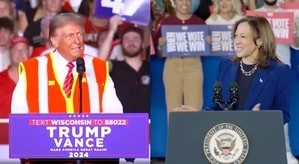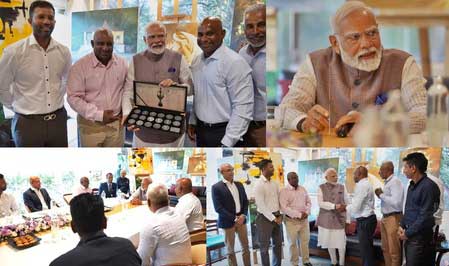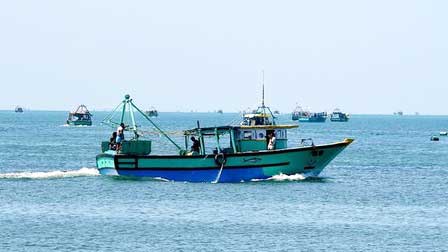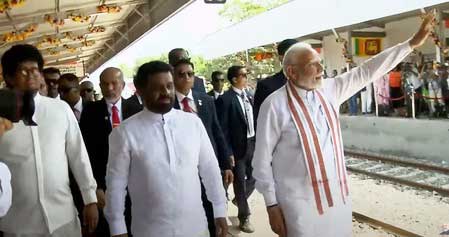A polarised US votes in an air of uncertainty on Tuesday for a President who will guide its destiny – and have an impact on the world – over the next four years.
The nation could make history by electing its first woman President, Kamala Harris who is of partial Indian descent, or re-elect Donald Trump, who had been defeated in 2020 after his first term.
The vicious campaign leading to the election was marred by violence with Republican Trump surviving two assassination attempts, one of them injuring him.
Vice President Harris became the party’s unexpected candidate just three months ago after President Joe Biden dropped out after he stumbled in a debate with Trump, showing signs of weariness of age.
She faces Trump, who has been campaigning non-stop for four years since his defeat that he has refused to admit.
Trump has promised a return to a “Golden Age” when America was great while Harris said she will turn the page for a new beginning of amity and cooperation.
While Trump has a record, however controversial it may be, Harris has had limited opportunities to distinguish herself in only three months of campaigning after emerging from Biden's shadow.
She faced the challenge of shaking off the legacy of the Biden administration with its record of inflation and surging illegal migration.
All the aggregation of polls showed a tie between the two candidates which in turn points to a photo finish.
By the time the first polling stations open at 5 A.M. (3:30 P.M. in India), about 81 million voters of the total electorate of 186.5 million – about 43 per cent – would already have cast their ballots through the early voting process.
The results are unlikely to be known by the time the last polling stations in Alaska and Hawaii close at midnight (10:30 A.M. Wednesday in India) if the results are so close that the postal votes can make a difference to the results.
The popular votes don’t count as much as the candidates' performance in the seven swing states which are not firmly entrenched on the side of either party and can, therefore, decide the winner because of the electoral college system.
The 538 electors in the electoral college, who elect the President, are distributed according to the size of the states, and the winning candidate has to amass 278 electors, with those from the swing states making a difference.






State budget emphasis on major infrastructural boost in Tripura to attract investors: CM Dr Manik Saha
Chief Minister Dr Manik Saha on Sunday claimed that the developing infrastructure in the state of Tripura is gradually attracting more investors in the state, which perhaps will boost the state’s economy.
M.A. Baby new CPI-M general secretary; Prakash and Brinda Karat step down from Politburo
The 24th Party Congress Communist Party of India (Marxist) concluded in Madurai on Sunday, marking a significant leadership transition. Senior party leader and Politburo member M.A. Baby has been appointed as the new General Secretary of the CPI-M,
Ram Navami celebrations peaceful in Bengal, TMC leaders also participate in processions
Ram Navami celebrations had been peaceful so far in West Bengal, with Trinamool Congress leaders in their own initiatives having organised processions on the auspicious occasion besides the ones already announced by the state BJP leaders as well as organisations like Anjani Putra Sena and Vishwa Hindu Parishad (VHP), among others.
Tripura will move forward through peaceful co-existence of all communities: CM Saha
Tripura Chief Minister Manik Saha on Sunday said that the state will move forward through the peaceful co-existence of people from both tribal, non-tribal and all other communities.
Tripura LoP Jitendra Choudhury replaces ex-CM Manik Sarkar as CPI-M politburo member
Leader of the Opposition (LoP) and CPI-M Tripura State Secretary Jitendra Choudhury on Sunday replaced former Chief Minister Manik Sarkar in the party's politburo, becoming the third communist leader from the state to have become a member of the party's highest policy-making body.
Sri Lanka’s 1996 World Cup-winning side gave birth to T20 cricket, says PM Modi
Prime Minister Narendra Modi stated that he believes Sri Lanka’s 1996 World Cup-winning side with their aggressive and unique style of batting gave birth to T20 cricket.